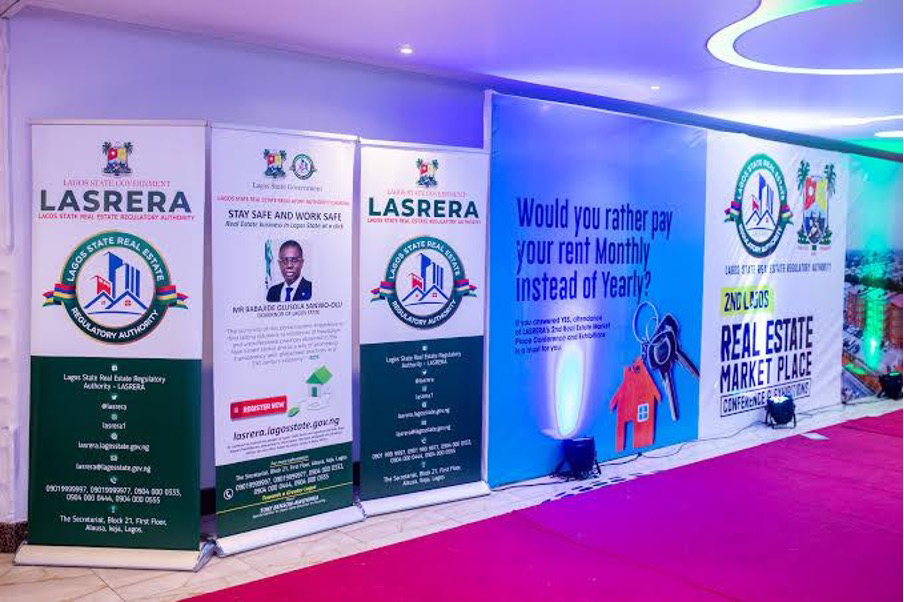
The real estate industry in Lagos State plays a vital role in meeting the housing needs of its growing population. However, the industry is increasingly plagued by fraudulent practices—ranging from multiple sales of the same property, to unregulated developers absconding with investor funds, to unauthorised developments on encumbered land. These issues not only erode investor confidence but also hinder the state’s vision for sustainable urban development.
Recently, a real estate developer was accused of selling receipts to her subscribers with adequate evidence to back up the claims. This practice is common among real estate developers in Lagos. For example, one hundred plots in a site and service scheme can be sold to five hundred subscribers. After two to three years, allocation will be made to only one hundred people, while the remaining four hundred will not have allocation within the scheme with a promise of giving them allocation of land in a lower value scheme or refunding their subscription.
This strategy is usually deployed as a source of project finance whereby excess subscribers fund will be used to finance the company’s projects and operations. Their goal is to ensure cashflow within the organisation. Where the subscriber’s fund is returned after several years of subscription, the amount would have lost significant value due to the hyper inflationary economic trend.
In order to build trust and protect stakeholders, especially prospective home owners and investors, proactive measures must be taken by the Lagos State Real Estate Regulatory Authority (LASRERA) in collaboration with other stakeholders.
First, LASRERA should develop mandatory “Transaction Payment and Monitoring System” to enforce the use of a real-time portal to track all financial (electronic) transactions between subscribers and property developers. The portal, which will integrate banks, card schemes, fintechs, and payment service providers, will require financial institutions to route transactions through it, giving LASRERA real-time visibility into eligible payments. This will enhance transaction audit trail, traceability and promote accountability.
Second, LASRERA should enforce a Mandatory Developers’ Licensing and Public Directory licensing system for all real estate developers in the state, making it illegal to advertise or sell property on social media or other platforms without registration.
This database must be accessible online, Regularly updated and Integrated with Lagos State Agencies in the development sector such as the: Lagos State Building Control Agency (LASBCA), Lagos State Physical Planning Permit Authority (LASPPPA), Lagos state safety commission inter alia.
Third, a Real Estate Transaction Verification Portal must be developed where prospective buyers can check developer registration status with LASRERA, confirm property title status (linked to the Lagos State Lands Bureau); verify planning approvals for the layout and development from LASPPA & LASBCA and project status with progress photographs which must be jointly reported by LASRERA appointed project auditor and the developer.
Fourth, ‘Project Registration Number’ must be issued on a project basis to each developer after scaling the due diligence hurdle of LASRERA. The number must be displayed on all sales adverts on social or other media. This will help the public to identify and verify information about the property advertised.
This number will provide the following information on the development : scope (site and services scheme / buildings, number of plots /units, plot sizes /building typologies, development phase plans, etc), names of consultants (if any), regulatory approvals, specifications for buildings and infrastructure, approved building and infrastructure design, approved layout, land survey from Lagos surveyor’s general office, title documents inter alia.
Fifth, LASRERA should collaborate more with EFCC and ICPC to investigate real estate investment fraud. Furthermore, Lagos State Judiciary should create special real estate tribunals to fast-track dispute resolution. This will deter criminal actors and improve investor recourse. Names of defaulting or blacklisted developers who have committed fraud or breached regulations, with case summaries must be published.
Sixth, there should be an online system for anonymous reporting of suspicious projects or illegal developments, community surveillance of developer activities inter alia. This will help in early fraud detection and community participation.
Seventh, there is need to launch regular campaigns to educate buyers about their rights under the Lagos Real Estate Regulatory Law, steps to verify developers and property titles, red flags in real estate transactions inter alia via radio, social media, religious centres, community town halls etc.
Eight, LASRERA should conduct quarterly reviews of licensed developers to ensure financial viability, check ongoing projects for compliance, delist non-performing developers inter alia as a risk management strategy.
In conclusion, curbing real estate fraud in Lagos is not just about penalties—it requires a proactive, systemic, and digital approach. LASRERA has made commendable progress in creating awareness, but must now move toward stronger enforcement, smarter regulation, and public trust-building. With a growing middle class, diaspora investors, and a booming housing market, Lagos State cannot afford to allow fraudulent developers to thrive unchecked.
By adopting these measures, LASRERA can reinforce its role as a gatekeeper of ethics, quality, and public trust in the real estate sector. LASRERA should convene a Real Estate Regulatory Summit with stakeholders—developers, buyers, landowners, lawyers, built environment professionals ( land surveyors, estate surveyors and valuers, architects , builders, town planners, quantity surveyors ,engineers ), realtors and financial institutions—to co-create a roadmap toward a fraud-free, investor-friendly Lagos real estate market.
Williams is a registered Architect, Estate Surveyor and Valuer, certified Project Manager and Chartered Accountant.






